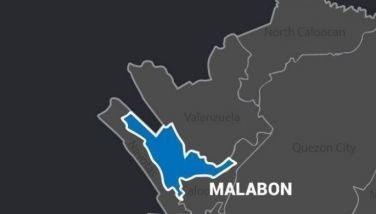First Philippine eagle bred in captivity to be set free
April 21, 2004 | 12:00am
For the first time in Asia, a male Philippine Eagle bred in captivity will be set free into the wilds of North Cotabato on April 22, coinciding with the worldwide celebration of Earth Day, the Department of Environment and Natural Resources (DENR) announced the other day.
The juvenile eagle named ŒKabayan‚ will be released by the Philippine Eagle Foundation (PEF) into the forests of the PNOC Geothermal Reserve located inside the Mt. Apo Natural Park in Kidapawan City.
The spot was chosen after a site suitability assessment, involving several months of case study on vegetation and fauna, found the place capable of meeting the food and nesting requirements of the Philippine eagles, which are considered among the rarest eagles in the world.
"The release (of ŒKabayan‚) marks the first time that a captive-bred eagle is to be introduced into the wilds. This will be the first ever in Asia. Eagles that have been let loose in the past grew up in their natural habitat and were restored to health and cared for due to their injuries prior to their release in the area where they are found," said DENR Secretary Elisea Gozun.
Kabayan, who has been brought to life via artificial insemination through the union of eggs and sperm of captive eagles ŒKahayag and ŒJunior, was born on November 23, 2002 and has been kept in an enclosure simulating a forest setting for a year and half.
Kabayan only encountered some degree of human interaction and was periodically introduced to live prey into his cage to improve his hunting skills while in captivity, the DENR said.
The bird has already been transported from the Philippine Eagle Center (PEC) to a so-called hack box, which is a makeshift cage made of cyclone wire, at the release site. Kabayan has been staying in the hack box for more than two weeks now to allow him to adjust to the new environment.
Observation areas with camouflage blinds will be made available on all sides of the hack box for the PEF’s field biologists while the observation post about 10 meters away from the hack box will also be made available for the media and other guests.
According to Gozun, the pioneering experimental release of Kabayan is part of the grand program of releasing captive-bred eagles into the forest to help boost up its kind.
The scheme is designed to monitor the bird’s adjustment to its new surroundings and to put to test Œrelease protocols as applied to the Philippine Eagle, she added.
Gozun also said that the result of the undertaking would consequently be used in setting up a full-blown re-introduction program in the future.
The juvenile eagle named ŒKabayan‚ will be released by the Philippine Eagle Foundation (PEF) into the forests of the PNOC Geothermal Reserve located inside the Mt. Apo Natural Park in Kidapawan City.
The spot was chosen after a site suitability assessment, involving several months of case study on vegetation and fauna, found the place capable of meeting the food and nesting requirements of the Philippine eagles, which are considered among the rarest eagles in the world.
"The release (of ŒKabayan‚) marks the first time that a captive-bred eagle is to be introduced into the wilds. This will be the first ever in Asia. Eagles that have been let loose in the past grew up in their natural habitat and were restored to health and cared for due to their injuries prior to their release in the area where they are found," said DENR Secretary Elisea Gozun.
Kabayan, who has been brought to life via artificial insemination through the union of eggs and sperm of captive eagles ŒKahayag and ŒJunior, was born on November 23, 2002 and has been kept in an enclosure simulating a forest setting for a year and half.
Kabayan only encountered some degree of human interaction and was periodically introduced to live prey into his cage to improve his hunting skills while in captivity, the DENR said.
The bird has already been transported from the Philippine Eagle Center (PEC) to a so-called hack box, which is a makeshift cage made of cyclone wire, at the release site. Kabayan has been staying in the hack box for more than two weeks now to allow him to adjust to the new environment.
Observation areas with camouflage blinds will be made available on all sides of the hack box for the PEF’s field biologists while the observation post about 10 meters away from the hack box will also be made available for the media and other guests.
According to Gozun, the pioneering experimental release of Kabayan is part of the grand program of releasing captive-bred eagles into the forest to help boost up its kind.
The scheme is designed to monitor the bird’s adjustment to its new surroundings and to put to test Œrelease protocols as applied to the Philippine Eagle, she added.
Gozun also said that the result of the undertaking would consequently be used in setting up a full-blown re-introduction program in the future.
BrandSpace Articles
<
>
- Latest
- Trending
Trending
Latest
Trending
Latest
Recommended
































